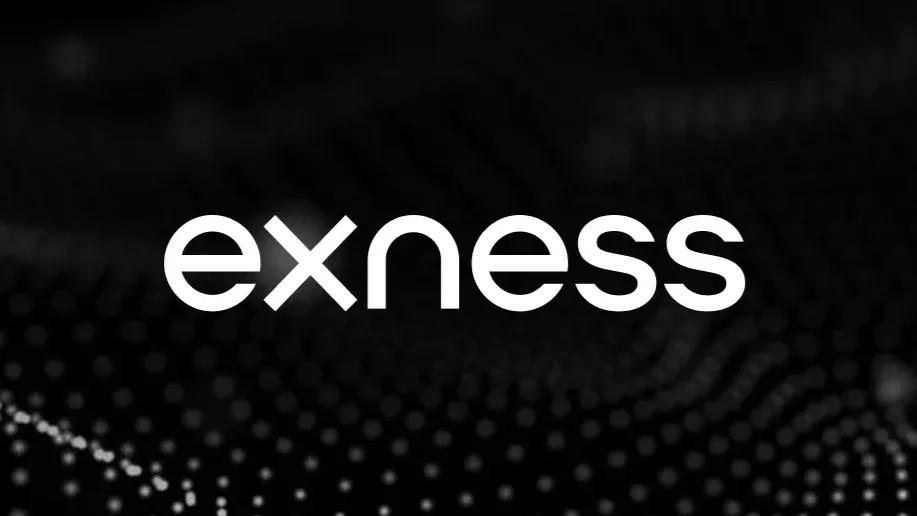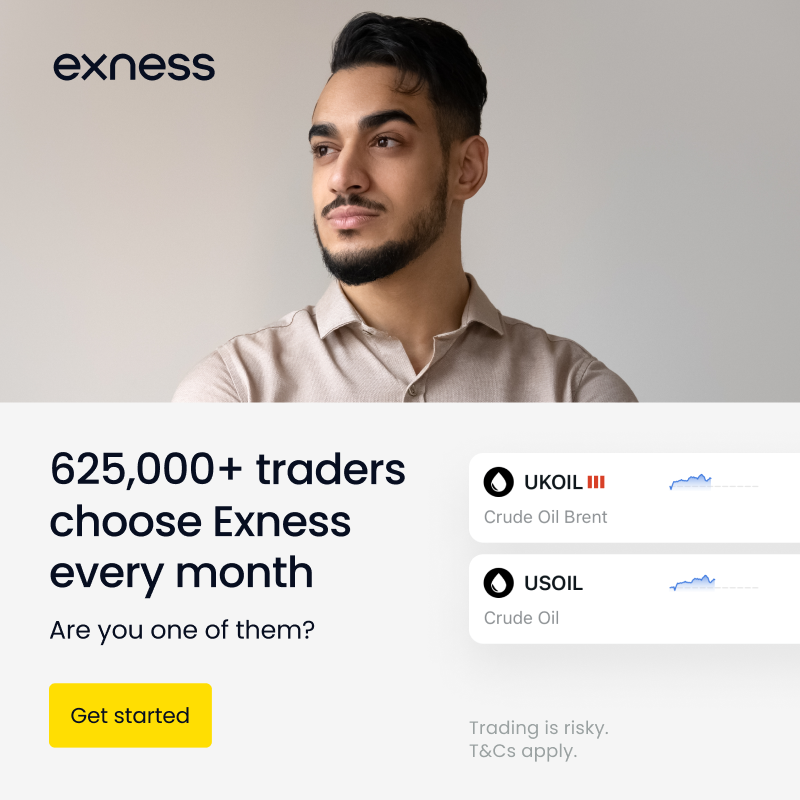
9 minute read
Is Forex Trading Legal in Nigeria? A Comprehensive Guide
from Exness Blog
by Exness_India
Forex trading has gained immense popularity worldwide, and Nigeria is no exception. With a growing number of Nigerians seeking financial independence and alternative income streams, the question often arises: Is forex trading legal in Nigeria? The short answer is yes, forex trading is legal in Nigeria. However, like any financial activity, it comes with regulations, risks, and considerations that every trader should understand. In this in-depth guide, we’ll explore the legality of forex trading in Nigeria, the regulatory framework, how to get started, and why it’s a viable opportunity for Nigerians in 2025.
Top 4 Best Forex Brokers in Nigeria
1️⃣ Exness: Open An Account or Visit Brokers 🏆
2️⃣ JustMarkets: Open An Account or Visit Brokers ✅
3️⃣ Quotex: Open An Account or Visit Brokers 🌐
4️⃣ Avatrade: Open An Account or Visit Brokers 💯
What Is Forex Trading?
Before diving into the legality, let’s clarify what forex trading entails. Forex, short for foreign exchange, is the global marketplace where currencies are bought and sold. It’s the largest and most liquid financial market in the world, with a daily trading volume exceeding $6 trillion. Traders profit by speculating on the price movements of currency pairs, such as USD/NGN (US Dollar/Nigerian Naira) or EUR/USD (Euro/US Dollar).
In Nigeria, forex trading has become a popular way for individuals to diversify their income, especially given the country’s economic challenges, including inflation and naira depreciation. But is this activity above board in the eyes of Nigerian law? Let’s find out.
The Legal Status of Forex Trading in Nigeria
Forex trading is completely legal in Nigeria. There is no law in the country that prohibits individuals or businesses from participating in the foreign exchange market. The Central Bank of Nigeria (CBN), the primary regulatory authority for financial activities, has not banned forex trading for retail traders. In fact, the CBN itself engages in forex transactions to manage the naira’s value and stabilize the economy.
However, legality comes with a caveat: forex trading must be conducted through legitimate and regulated channels. The CBN and other financial authorities, such as the Securities and Exchange Commission (SEC), oversee financial markets to protect investors and maintain economic stability. While forex trading is permitted, certain activities—like operating an unlicensed forex brokerage or engaging in fraudulent schemes—are illegal and heavily penalized.
Key Points on Legality:
Retail Forex Trading Is Allowed: Nigerian citizens can trade forex using their personal funds through international brokers.
No Specific Forex Ban: Unlike some countries that restrict forex trading, Nigeria has no such prohibition.
Regulation Exists: Forex brokers and financial institutions operating within Nigeria must comply with CBN and SEC guidelines.
So, if you’re a Nigerian looking to trade forex, rest assured that you’re not breaking any laws—provided you follow best practices and work with reputable platforms.
The Regulatory Framework Governing Forex Trading in Nigeria
While forex trading is legal, it operates within a broader financial regulatory framework. Here’s a breakdown of the key bodies and rules that shape forex trading in Nigeria:
1. Central Bank of Nigeria (CBN)
The CBN is the apex monetary authority in Nigeria. It controls the country’s foreign exchange reserves and regulates the flow of foreign currency. While the CBN doesn’t directly oversee retail forex trading, it has policies that impact traders:
Foreign Exchange Restrictions: The CBN occasionally imposes restrictions on forex access for certain transactions (e.g., importing goods). However, these rules don’t apply to retail forex trading.
Naira Stability: The CBN intervenes in the forex market to manage naira volatility, which directly affects forex traders using NGN pairs.
2. Securities and Exchange Commission (SEC)
The SEC regulates Nigeria’s capital markets, including investments and securities. In recent years, the SEC has taken an interest in forex trading due to the rise of online brokers and investment scams. In 2020, the SEC issued a circular stating that forex brokers offering contracts for difference (CFDs) must be registered with the commission if they operate in Nigeria. However, this rule primarily targets brokers, not individual traders.
3. International Brokers
Since Nigeria doesn’t have a robust local forex brokerage industry, most traders use international platforms like MetaTrader 4/5, regulated by bodies such as the Financial Conduct Authority (FCA) in the UK or the Cyprus Securities and Exchange Commission (CySEC). These brokers are legal for Nigerians to use, as long as they comply with international standards.
4. Anti-Fraud Measures
While forex trading itself is legal, scams and Ponzi schemes disguised as forex investments are not. The Nigerian government has cracked down on fraudulent operators promising unrealistic returns. For example, in 2019, the SEC warned against unregistered forex training programs and investment schemes.
In summary, forex trading is legal in Nigeria under the oversight of the CBN and SEC, but traders must exercise caution to avoid unregulated or shady operators.
Why Forex Trading Is Thriving in Nigeria
Nigeria’s economic landscape has fueled the rise of forex trading. Here are some reasons why it’s become a go-to option for many:
1. Economic Challenges
With inflation rates soaring (over 30% in 2024) and the naira losing value against major currencies, Nigerians are seeking ways to protect their wealth. Forex trading offers an opportunity to profit from currency fluctuations, including the naira’s depreciation.
2. High Youth Unemployment
Nigeria has a youthful population, with millions of graduates entering a job market that can’t accommodate them. Forex trading provides a flexible, skill-based income source that doesn’t require a traditional 9-to-5 job.
3. Internet Penetration
The growth of affordable smartphones and internet access has made forex trading accessible to Nigerians across urban and rural areas. Platforms like MT4 and mobile trading apps have lowered the entry barrier.
4. Global Market Access
Forex trading connects Nigerians to the global economy. With just a laptop or phone and an internet connection, anyone can trade currencies alongside Wall Street professionals.
These factors have created a fertile ground for forex trading to flourish legally in Nigeria.
How to Start Forex Trading Legally in Nigeria
If you’re convinced that forex trading is legal and want to get started, here’s a step-by-step guide to ensure you’re on the right path:
Step 1: Educate Yourself
Forex trading isn’t a get-rich-quick scheme. It requires knowledge of technical analysis, fundamental analysis, and risk management. Take advantage of free resources like YouTube tutorials, forex blogs, and demo accounts offered by brokers.
Step 2: Choose a Reputable Broker
Select a regulated international broker that accepts Nigerian clients. Popular options include:
Exness: Known for low spreads and excellent customer support.

💥 Trade with Exness now: Open An Account or Visit Brokers
Check for regulation by bodies like the FCA, CySEC, or ASIC to ensure your funds are safe.
Step 3: Fund Your Account
Most brokers accept deposits via bank cards, wire transfers, or e-wallets like Skrill and Neteller. In Nigeria, local payment options like Flutterwave and Paystack are increasingly supported. Be mindful of CBN forex restrictions, which may limit how much foreign currency you can access.
Step 4: Practice with a Demo Account
Before risking real money, use a demo account to test your strategies. This is a risk-free way to learn the ropes.
Step 5: Start Small
Once you’re ready, deposit a small amount (e.g., $10–$100) and trade micro-lots to minimize risk. As you gain experience, you can scale up.
Step 6: Stay Compliant
Keep records of your trades and income. While forex profits aren’t heavily taxed in Nigeria yet, the government may introduce regulations in the future.
By following these steps, you can trade forex legally and responsibly in Nigeria.
Common Misconceptions About Forex Trading in Nigeria
Despite its legality, forex trading is surrounded by myths that deter potential traders. Let’s debunk some of them:
Myth 1: Forex Trading Is Gambling
While forex involves risk, it’s not gambling. Successful traders rely on analysis, strategy, and discipline—not luck.
Myth 2: It’s Illegal Because It’s Online
The fact that forex trading happens online doesn’t make it illegal. The internet is just a tool, and the activity itself is permitted.
Myth 3: You Need Millions to Start
Many brokers allow you to start with as little as $5 or $10. Forex trading is accessible to people of all income levels.
Myth 4: The CBN Will Arrest Forex Traders
The CBN has no interest in targeting individual retail traders. Its focus is on stabilizing the economy and cracking down on fraud.
Clearing up these misconceptions can help Nigerians approach forex trading with confidence.
Risks of Forex Trading in Nigeria
While forex trading is legal and offers opportunities, it’s not without risks. Here’s what to watch out for:
1. Market Volatility
Currency prices can swing wildly, especially with pairs involving the naira. Traders must be prepared for losses.
2. Scams
Unregulated brokers or fake “mentors” promising guaranteed profits can drain your funds. Always verify a broker’s credentials.
3. Leverage Risks
Forex brokers offer leverage (e.g., 1:100), which amplifies both profits and losses. Over-leveraging can wipe out your account.
4. Regulatory Gaps
Nigeria’s forex market isn’t as tightly regulated as those in the US or Europe, leaving room for exploitation.
To mitigate these risks, trade with a clear strategy, use stop-loss orders, and never invest money you can’t afford to lose.
The Future of Forex Trading in Nigeria
Forex trading in Nigeria shows no signs of slowing down. The government and financial authorities are gradually recognizing its potential as a legitimate economic activity. The SEC may introduce more specific regulations for retail forex trading, which could enhance investor protection and market credibility.
Additionally, advancements in fintech—such as blockchain-based trading platforms and AI tools—could make forex more accessible and efficient for Nigerians. With the right education and regulation, forex trading could become a cornerstone of Nigeria’s financial landscape.
Conclusion: Yes, Forex Trading Is Legal and Promising in Nigeria
To wrap up, forex trading is unequivocally legal in Nigeria. It’s a viable opportunity for Nigerians to earn income, hedge against inflation, and participate in the global economy. However, success requires education, discipline, and caution. By choosing regulated brokers, starting small, and staying informed, you can trade forex legally and profitably in Nigeria.
💥 Trade with Exness now: Open An Account or Visit Brokers
Are you ready to explore the world of forex trading? The market is open 24/5, and with Nigeria’s growing trading community, there’s never been a better time to start. Share your thoughts or questions in the comments below—I’d love to hear from you!
Read more:



